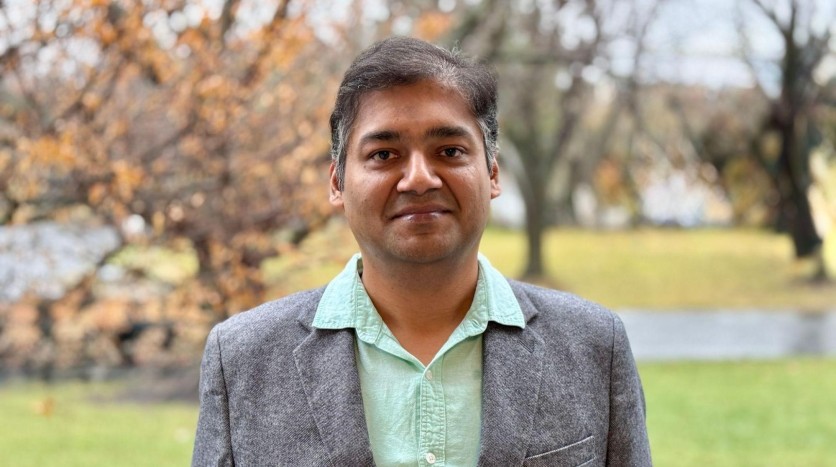
Distributed systems are essential for powering modern solutions, from social media platforms to global e-commerce sites. These systems break down complex tasks by distributing them across multiple machines, ensuring scalability, reliability, and uninterrupted service—even under immense user demand.
These systems are built by experts like Abhishek Gupta, a software engineer with over fifteen years of experience. Specializing in distributed systems and backend infrastructure, he's worked at global enterprises like Salesforce, where he built microservices and optimized distributed systems for large-scale APIs, and a major social media platform, where he designed backend architectures for platforms to handle billions of global users.
For Abhishek, building robust distributed systems isn't just about technology—it's about delivering reliability at a global scale. Learn more about his insights into mastering the art of distributed systems.
How Abhishek Gupta Meets the Challenge of Global Scale
According to Abhishek Gupta, distributing workloads across multiple machines is essential for reliability and availability. However, it also introduces complexities, especially if the system must handle billions of daily interactions.
The primary challenge is maintaining low latency and high availability. As billions of users log on simultaneously, the system must continue to perform flawlessly—any failure to scale effectively can result in significant downtime, lost revenue, and a damaged reputation.
To meet these needs, Abhishek has been intimately involved in growing and maintaining scalable distributed systems. While working at top tech firms, he played a pivotal role in designing backend systems capable of handling massive global traffic.
While working for a leading social media company, he optimized data storage to prepare for high-traffic events like New Year's Eve. He implemented shard balancing—distributing data evenly across database partitions to avoid bottlenecks—and risk mitigation strategies to ensure uninterrupted service during peak hours. This not only benefited reliability but also enhanced the user experience by maintaining low latency under extreme conditions.
At the same organization, Abhishek also strengthened the platform's backend in order to meet global privacy regulations, embedding security into the core of its distributed architecture.
Another key facet of his work in scaling distributed systems was a focus on optimizing organizational efficiency and implementing solutions that streamlined engineering processes. For example, while at Salesforce, he developed a distributed logging framework that drastically reduced debugging time for engineers and improved system visibility. This significantly streamlined engineering workflows and amplified worker productivity.
For Abhishek, distributed systems are not just a tool but a framework for scaling modern platforms. By leveraging their ability to improve reliability by processing data across multiple nodes, he's worked to keep some of the world's most popular platforms running smoothly under extreme loads.
Lessons from Abhishek's Work
Abhishek Gupta's main philosophy regarding distributed systems revolves around one core principle: reliability. To him, reliability is not just a technical goal but a commitment to the users who depend on these systems. This mindset is what's behind every aspect of his work, from designing fault-tolerant architectures to implementing proactive risk mitigation strategies.
"Reliability isn't just a metric," he explains. "It's a promise to the user. When you're building infrastructure that billions depend on, there's a real sense of responsibility."
The other key area is risk mitigation—for example, expanding and optimizing network storage fleets to build additional failsafes into a system. By strategically managing the storage resources that the multiple nodes rely upon, you can build failsafes directly into the infrastructure, allowing the cluster to recover quickly from outages and ensuring uninterrupted service.
Finally, Abhishek emphasizes the importance of using monitoring and debugging frameworks, which can alert engineers to potential issues before they escalate and help them shorten system downtime—or eliminate it altogether.
Thought Leadership and Mentorship
Abhishek's commitment extends far beyond his technical contributions—he's also a recognized thought leader and mentor.
He's a fellow of the British Computer Society (BCS) and the Institution of Electronics and Telecommunication Engineers (IETE), as well as an IEEE Senior Member. In 2024, he served as a judge for the Globee Technology Awards. He's published numerous articles in Global Banking and Finance Review and Innovation & Tech Today, and he's a peer reviewer for academic journals.
Over the course of his career, Abhishek has mentored over thirty engineers, helping them grow into skilled professionals and secure leadership roles at top tech companies. His guidance places a particular focus on critical areas like reliability engineering, compliance, and strategic thinking—skills that are essential for thriving in software engineering. This approach helps his mentees not only gain technical proficiency but also approach challenges with resilience and long-term vision.
Finally, Abhishek has published articles on emerging tech trends like distributed systems and judged innovations for the Globee Technology Awards.
Abhishek Gupta: Building Distributed Systems
By designing modern distributed systems with the goal of improving efficiency and resilience, Abhishek Gupta has worked to ease the technical burden of global platforms that serve billions of users. In the future, he plans to focus on large-scale infrastructure, particularly in storage solutions and microservices. He also wants to expand his contributions to open-source projects, enhancing tools used by global tech communities. Finally, he always aims to be a firm advocate for reliability and ethics in engineering. As data privacy and compliance become increasingly important issues, he seeks to build platforms that not only perform at scale but also prioritize user trust and security.
In doing so, Abhishek aims to leave a lasting legacy in distributed systems and software engineering as a whole, and he hopes to be known for creating scalable solutions that improve lives worldwide.
ⓒ 2025 TECHTIMES.com All rights reserved. Do not reproduce without permission.





